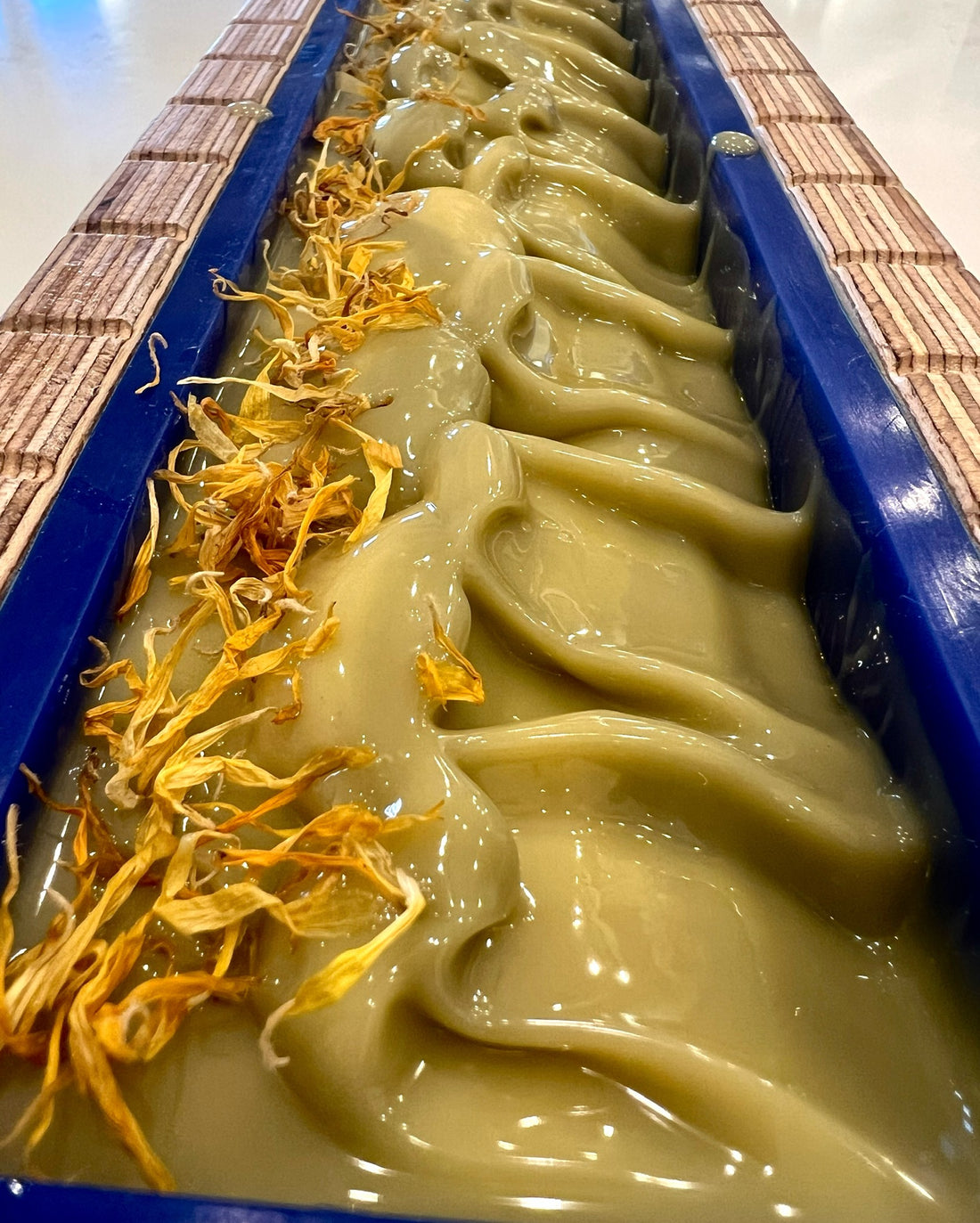
What is Cold Process Soap?
What is Cold Process Soap? 🧼✨
If you’ve ever wondered how handmade soap gets its unique texture, bubbles, and luxurious feel, you’re probably looking at cold process soap! This traditional method of soap-making has been around for centuries and remains one of the most popular ways to create natural, skin-loving bars today.
Let’s dive in and explore what cold process soap is, how it’s made, and why it’s so special.
What is Cold Process Soap?
Cold process soap is made using a chemical reaction between oils and lye (sodium hydroxide) called saponification. The magic happens when these two ingredients combine to form soap and glycerin. Unlike other soap-making methods, no external heat is used in the cold process, which allows the oils and butters to retain their natural properties.
How is Cold Process Soap Made?
Making cold process soap is an art that takes time, patience, and care. Here's a brief overview of the process:
- Mixing Oils & Lye Solution: First, oils (like olive, coconut, or palm oil) are measured and melted down. Separately, lye is mixed with water to form a lye solution. This is a critical step since lye can be caustic and dangerous if not handled properly.
- Combining the Two: Once both the oils and lye solution cool to a safe temperature, they’re slowly combined. The mixture is then stirred until it thickens and reaches “trace” – this is the stage where it has the consistency of pudding.
- Adding Scents & Colors: At this point, you can add essential oils for fragrance, natural colorants like clays or herbs, and other skin-loving additives like honey or oats.
- Pouring into Molds: The mixture is poured into molds and left to cure at room temperature for 24-48 hours, forming a solid block of soap.
- Curing: After the initial setting, the soap is removed from the molds and cut into bars. It then needs to cure for 4-6 weeks. During this time, excess water evaporates, and the soap hardens, making it long-lasting and mild.
Why Choose Cold Process Soap?
- All-Natural Ingredients: Our luxurious soap bars are made with high-quality, natural oils, butters, and botanicals, free from harsh chemicals or detergents that can strip your skin of its natural oils.
- Glycerin-Rich: The saponification process naturally produces glycerin, a humectant that attracts moisture to the skin. This makes cold process soap moisturizing, leaving your skin feeling soft and hydrated.
- Customizable: Because it’s handmade, you can tailor your soap with your favorite scents, colors, and ingredients to suit your skin type or personal preferences.
- Long-Lasting: Cold process soap tends to last longer than store-bought soap, especially when stored properly. It doesn’t dissolve as quickly because the curing process removes excess moisture, making it more solid and durable.
- Eco-Friendly: Our soap bars are made with sustainably sourced oils, plant based butters and biodegradable ingredients, making it a more environmentally conscious choice.
Is Cold Process Soap Better for Your Skin?
For most people, yes! Cold process soap is gentle on the skin, and its moisturizing properties make it ideal for dry, sensitive, or acne-prone skin. Plus, since it's free of synthetic fragrances or harsh chemicals, it's a great option for those with skin conditions like eczema or psoriasis.
The Bottom Line
Cold process soap is a beautiful blend of art and science, crafted with care to provide a rich, luxurious lather and nourishment for your skin. Whether you love the idea of supporting small-batch soap makers or are simply looking for a natural alternative to store-bought soaps, cold process soap is definitely worth the try!